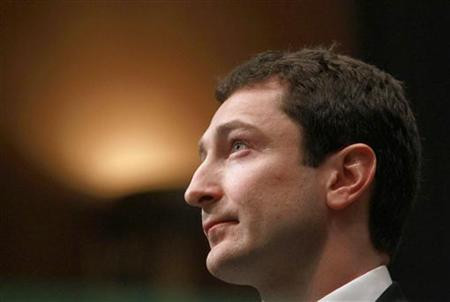Ex-Goldman Trader Fabrice Tourre Trial to Resume Deliberations

Jurors are entering the second day of deliberations on a case accusing the former vice-president of Goldman Sachs of misleading investors in a sub-prime mortgage investment deal five years ago.
They will decide on whether to hold Frenchman Fabrice Tourre liable for the complex deal that resulted in significant losses to investors.
After meeting for six hours, US District Judge Katherine Forrest sent the jurors home, ordering that the trial resume on Thursday [1 August]. The jurors, comprising five women and five men, were unable to reach a verdict on the case brought by the US Securities and Exchange Commission (SEC).
Forrest earlier told jurors it was their job to determine whether the SEC had enough evidence to hold Tourre liable.
"You are the sole judges of the credibility of the witnesses," she said.
The SEC had earlier accused Tourre of misleading investors in a sub-prime mortgage investment deal called Abacus 2007-AC1, and of secretly helping billionaire John Paulson's hedge fund make a billion dollars in profit by betting against the fund.
The mortgage product tanked when the US housing market crashed. However, Paulson made $1bn (€754m, £657m) from the deal.
Goldman Sachs, charged along with Tourre in 2010, settled the case for $550m without admitting or denying any wrongdoing.
The Government seized Tourre's personal and professional emails to prove that the 34-year-old banker, who earned $1.7m in 2007, enticed investors into a deal that was actually designed to fail.
Tourre has been battling the claims of the SEC for three years. Once proven guilty in the civil action, he will either have to pay penalties or face a lifetime ban from the investment industry.
Tourre has said that the regulator's key email evidence against him is inaccurate and has denied any wrongdoing. During his trial, Tourre termed the correspondence a "silly, romantic email."
SEC Less Aggressive?
The SEC has been facing criticism that the agency is not strong enough to enforce its authority over individuals who were involved in insider trading during the financial crisis.
A win in Tourre's case is expected to help the US market watchdog to answer critics' arguments.
In its attempt to refute the arguments, the SEC has already pointed to charges it brought against 157 entities and individuals in financial crisis-linked cases. The government agency noted that it generated $2.68bn from defendants, largely in settlements.
© Copyright IBTimes 2025. All rights reserved.






















